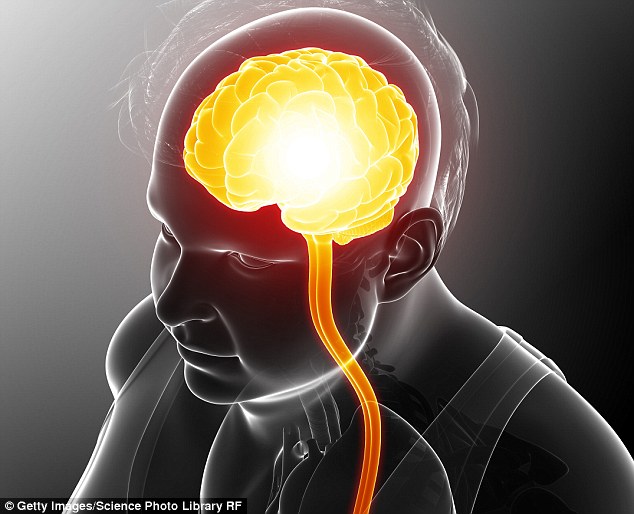Scientists reduced hunger in obese patients by muffling the signal sent by a nerve to tell the body its hungry, according to newly-published research.
For the 160 million Americans who are overweight or obese, only five to 10 percent are predicted to have long-term success with their weight loss programs.
In an effort to improve those odds, researchers at Emory University have developed an experimental new treatment that involves freezing a nerve that carries hunger signals to the body.
Their proof-of-concept study found that 100 percent of the participants felt less hungry without any complications or adverse side effects, and some dropped weight within 90 days.
More than two thirds of American adults are either obese or overweight, significantly raising their risks for many potentially deadly diseases to – literally – epidemic proportions.
Diet and weight loss plans, programs, boot camps and consultants make up a $66 billion industry in the US, and each boasts more impressive success rates than the last.
Research on weight loss success rates – while the outcomes vary wildly – is less optimistic, with most estimating that somewhere around five to 10 percent of people are able to keep the weight off in the long run.
Unfortunately, this has led many to blame those who struggle with their weight, rather than weight loss programs themselves, for failing.
But Dr David Prologo says that that assessment is neither helpful nor accurate, and that the effectiveness of the nerve-freezing treatment he and his team is testing helps to prove it.
‘Folks that are overweight or obese have overactive [nerve] signals for hunger,’ he says.
‘The obesity medicine community realized that this over-activity is a known physical state’ that is part and parcel of either condition.
When we are hungry, a signal – in the form of a tiny electrical impulse – travels up from the stomach to the brain along the vagus nerve, creating our perceived feeling of hunger.
For overweight or obese people who feel hungry even when they have eaten enough calories to sustain them, ‘their over-active signals are much greater than a lean person’s and there is way too much signalling going on,’ Dr Prologo explains.
This signal ‘induces food-seeking and says “whatever you’re doing is less important than finding food,”‘ he says.
A second signal runs the opposite direction along the vagus nerve – from the brain to the stomach – and gives the command for food to move through the digestive system.
For obese and overweight people, there is often ‘way too much food moving through,’ says Dr Prologo.
Essentially, the food consumption traffic lights just don’t turn red or yellow nearly as often as they should in people who have excessive appetites.
Using a procedure called a CT-guided ablation, Dr Prologo and his interventional radiology team ran some signal interference.
The researchers used CT image scanning to find the best path from each of the 10 study participants’ backs to the junction between their esophagus and stomach, where they would target one branch or trunk of the vagus nerve.
Once they’d found the right route, they numbed the area and guided a long thin needed through each person’s body, and the segment of the vagus nerve a quick blast of freezing cold argon gas. The whole thing takes about 25 minutes, and is virtually painless.
By freezing just one of the two trunks, ‘we’re only taking out about half of the available conduits for the signal, so we’re somewhat dialling it down, but it’s not complete attenuation,’ so the patients are not risk of losing their appetites altogether, Dr Prologo explains.
When asked how their appetites had changed 30, 60 and 90 days after the procedure, every patient said they felt less hungry.
By 90 days after the ablation, all but one person had lost at least a little bit of weight.
The effects of nerve ablations typically last between nine and 12 months, which Dr Prologo says he is ‘absolutely sure is enough time,’ for people to have a break from their noisy hunger signals and put good habits into place.
The hope is that after the nerve regains full functionality it will have a new ‘set place,’ or default mode, but ‘if you take away the things that are making you unable to form a new habit, it will effectively get you over the hump by the time the nerve regenerates, whether your set place has changed or not,’ Dr Prologo says.
This is especially important for the group of overweight, mildly or moderately obese patients who ‘struggle with calorie restriction because they’re hungry’ – as opposed to those who overeat for other reasons – that the procedure is designed for.
Severely obese patients can get bariatic surgeries, like gastric bypass, but people who don’t medically qualify ‘don’t have any other good options, just a myriad of undoable diets,’ says Dr Prologo.
And the fact that those diet and weight loss plans really are undoable, he says, ‘is the driving force behind the study.
‘The idea that these people can’t lose weight because they are weak in the mind is as ridiculous as telling someone to just overcome heart disease or white-knuckle through cancer,’ Dr Prologo says.
‘There are certain barriers in place that don’t allow us to lose weight, and how you treat that state is important, you have to do something from the inside out,’ such as turning the volume down on hunger signals, he says.
‘I’d like fat shamers to take that home and say that they were wrong, because it’s not mind over matter,’ as Dr Prologo’s findings suggest.












